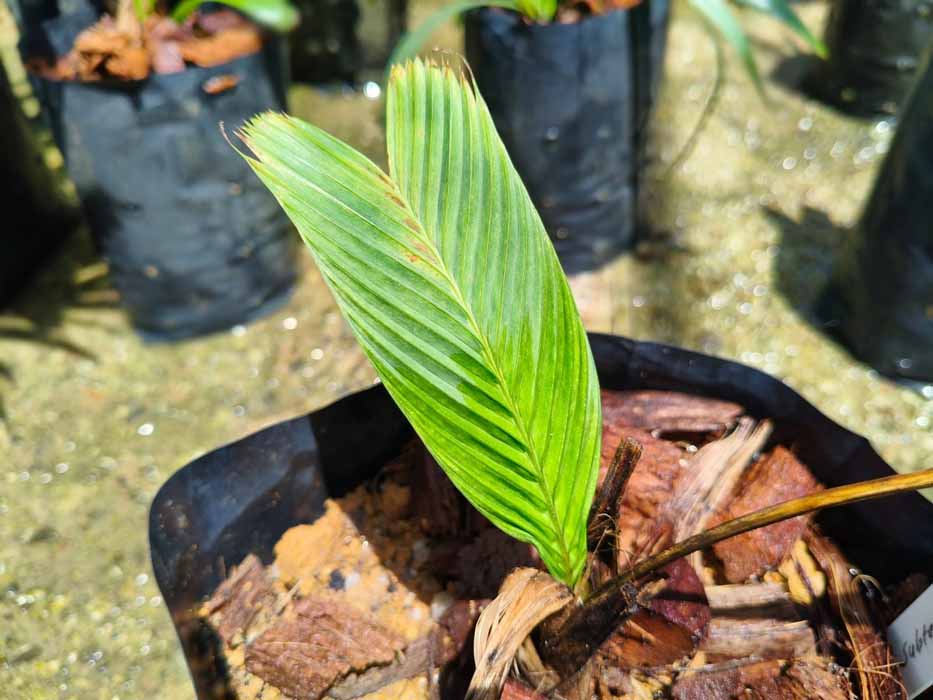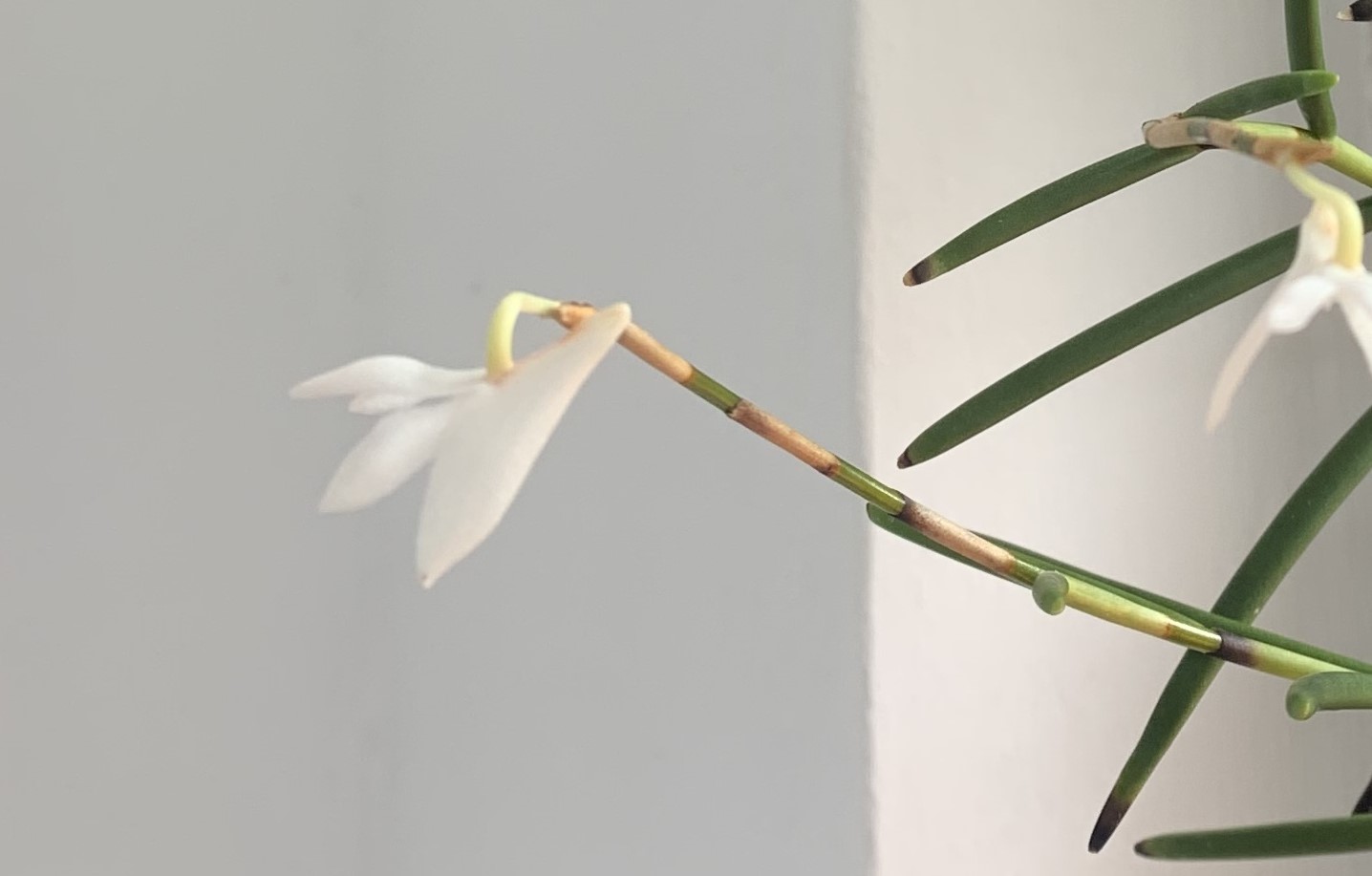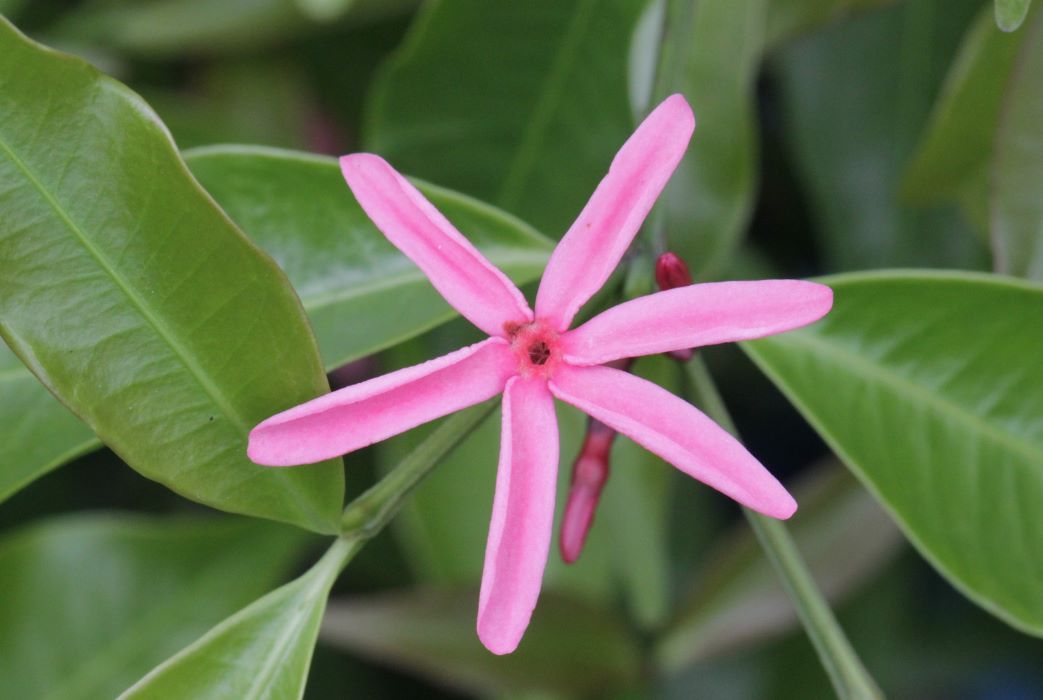News Listing Page

Palm with underground flowers and fruits
06 February 2024
Botanists discovered a most unusual palm that flowers and fruits completely underground! Pinanga subterranea is believed to be pollinated by beetles and seed dispersal is aided by wild boars. The palm was first noticed in Lanjak Entimau Wildlife Sanctuary, Sarawak by a Malaysian botanist in the late 1990s. A team of Royal Botanic Gardens, Kew later found the palm growing abundantly in the same area in 2018. While this finding has only been recently published, the fruit is a common part of the diet of the indigenous people. This shows the importance of the knowledge of indigenous people in supporting and enriching scientific information.

Two extant orchid species in Singapore
02 January 2024
Herbarium specimens of Dendrobium singaporense and Bulbophyllum gusdorfii collected nearly 30 years ago in 2001 and 1993 respectively, were uncovered in the herbarium of the Lee Kong Chian Natural History Museum, National University of Singapore. The local conservation status of these species are currently extinct and these herbarium specimens suggests that it should be reconsidered to extant. However, without any current wild sightings, the species will again cross the threshold to being presumed nationally extinct, as any species not seen in the wild for 30 years is categorized as nationally extinct in Singapore.

The Mystery of an Unknown Kopsia
07 December 2023
In recent years, a pink-flowered Kopsia species was found to be in cultivation in Singapore. It was also observed in regional plant markets and has gained popularity as a free flowering, landscape shrub. Despite extensive research, field botanists have not been able to locate this elusive species in the wild. Its unique dark pink corolla and narrow corolla lobes distinguish it from other Kopsia species. This new species is now recognised as Kopsia obscura to reflect its currently unknown origins.

Studying plants with AI
07 November 2023
With climate change becoming an acute reality, how plants adapt to a changing environment is an increasingly essential survival trait. Conventionally, researchers conduct long-term studies of plants’ responses at the anatomical level using labour-intensive methods that require millions of repeated samples. The University of Zurich created PlantServation, an AI software to scan samples to detect differences in leaf colour under simulated field conditions while learning to filter out unrelated data from variable plant shapes, background noise and even plant death while detecting leaf colour in each plant automatically. This research looks to improve the efficiency of long-term studies of plants in a complex and fluctuating natural environment.

Rediscovery in Singapore of Orophea hastata and Uvaria clementis (Annonaceae)
02 October 2023
Two species previously thought to be nationally extinct in Singapore were rediscovered and have been re-classified as nationally Critically Endangered.
Orophea hastata was known from Singapore from two historical collections from the late 19th century and was rediscovered in Bukit Timah Nature Reserve in December 2022. This small tree grows up to 13 m tall and only two mature individuals are known in Singapore.
Uvaria clementis was known from historical records from the late 19th and early 20th century before re-discovery in the Singapore Botanic Gardens Rainforest in September 2018. It was later also found in 2020 from the Central Catchment Rainforest. In Singapore, only a few mature individuals of this large woody climber are found in primary and old secondary lowland rainforests.

Plants for a Liveable and Resilient Singapore
06 September 2023
Singapore's experience of growing plants in an urban environment was important in the creation of a liveable, sustainable, and climate resilient city. Horticulture programmes in Singapore like community gardens, allotment gardens in parklands, the Gardening with Edibles programme, and therapeutic horticulture programme contributed to the social imperative of cultivating community ownership of green estates, community ties, and interest in horticulture and gardening by offering distinct platforms for people to gather and engage with nature. These programmes also had the added advantage of promoting food security in the island nation.
